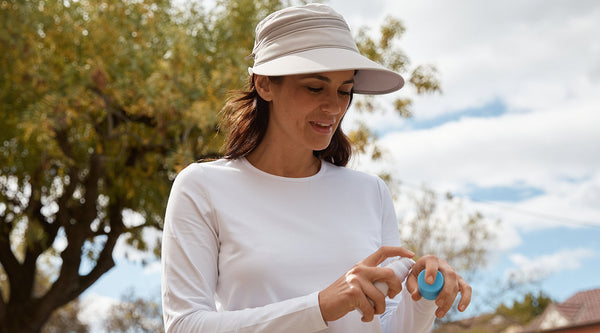Polymorphic light eruption, also known as polymorphous light eruption, PLME or PLE is a genetic skin condition represented by a rash which is triggered by exposure to ultraviolet radiation (UV). The “eruption” or rash appears as pink or red with small (2mm to 5mm) raised plaques of skin.
It is common for the condition to first appear in Spring/Early Summer or the first time a person has significant sun exposure in a particular year. The rash can appear 30 minutes to several hours following sun exposure and typically lasts around 10 days or so, before going away without scarring. It is not uncommon for a person with this condition to experience an annual occurrence.
PLE can be physically and emotionally distressing for those who experience it.
The cause of polymorphic eruption is not entirely clear, but it is believed to be a hypersensitivity to an allergen produced in the body due to sun exposure. PLE is triggered by exposure to sunlight or artificial UV from a tanning bed.
There is an increased incidence rate amongst women aged between 20-40 years old with fair skin and for individuals based in countries where significant sun exposure is less common. For example, in the UK it is thought to impact between 10-15% of the population.
Medical experts believe the best preventative measure that you can take is to manage your sun exposure. Dermatologists recommend using a sunscreen with SPF of 30 or higher and UPF 50+ sun protective clothing and a broad brim sun hat to help reduce the risk of an eruption.
Solbari is an Australian offers a range of UPF50+ sun protection clothing, sun hats, UV umbrellas, UPF arm sleeves and SPF skincare.
You can find out more about Solbari's sun protective range by clicking the blue links below:
Women UPF 50+
Men UPF 50+
Sun hats UPF 50+
Accessories UPF 50+
SPF 50+ Sunscreen



